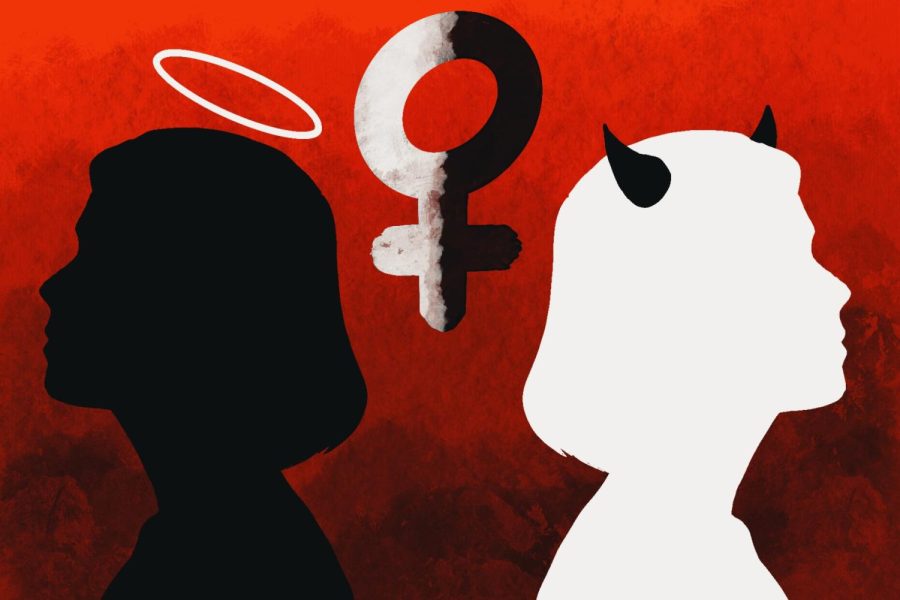To Be Loved or To Be Feared
March 21, 2023
In honor of Women’s History Month, we’re exploring some of the most iconic morally ambiguous female characters and examining why they continue to captivate audiences and inspire conversations about gender, power, and morality.
- Medea from the Greek tragedy “Medea” by Euripides
Medea, the granddaughter of the sun god Helios, experienced prominent interest in the feminist movement of the late 20th century. She breaks the norm of a loving and nurturing mother by harming her children to seek justice and revenge for herself when her husband Jason leaves her to marry the wealthier princess of Corinth. While killing her children to punish Jason is morally reprehensible, Medea’s justice demonstrates her desire to retain her agency in the patriarchal society.
Dr. Douglas Bruster, Professor of English and American Literature, thinks that “Medea” was a radical work of its time because of how it treats gender and the complexity of human nature.
“It is one of (Euripedes’) strongest plots where the unthinkable (happens) … Mother deliberately sacrificing her own children, (which) opens up the question of female passion, justice, and the role of anger in our lives,” Bruster said.
Essentially, Medea’s passion, vengeance and commitment to justice make her memorable. While she is undeniably cruel, her strength and resilience are admirable when she escapes from patriarchal oppression in Corinth.
- Lady Macbeth from Shakespeare’s “Macbeth”
Lady Macbeth comes across as someone who is ambitious and ruthless, and she defies conventional morality when she convinces her husband to murder the king, who was a guest at their home. Her ambition for power demonstrates her willingness to break traditional gender norms. She wants agency and control, instead of being submissive to her husband.
English professor Dr. Eric Mallin elaborated on how Lady Macbeth may seem tough and ruthless, but she’s vulnerable inside and doesn’t understand the implications of violence.
“There’s one thing that Shakespeare is doing that you could argue is anti-feminist, is that women have all this power, but they can’t commit this kind of violence without it messing up their lives,” Dr. Mallin said, referring to Lady Macbeth’s descent into madness.
Overall, Lady Macbeth’s strength, ambition, ruthlessness and even weakness make her multi-dimensional and incredibly human.
- Daenerys “Stormborn” Targaryen a.k.a “Mother of Dragons” from the fantasy series “A Song of Ice and Fire” by George R.R Martin
Dany, as her fans call her, is considered by many to be the feminist icon in “A Song of Ice of Fire,” and in the TV adaptation “Game of Thrones.” She’s portrayed as a champion for justice and liberation, working to free slaves and oppressed people. Dany is also a survivor of trauma and abuse at the hands of her brother, having been sold into marriage as a young girl. Within this context, Dany’s character is admirable: she overcomes adversity, is willing to be a great ruler, and works to fulfill her dream of conquering Westeros.
However, Dany’s actions demonstrate a darker side to her character. As she gains power and influence, she is willing to use violence to achieve her goals, exemplified by her crucifixion of slave masters. Her moral ambiguity stems from the tension between her desire to be a just and compassionate ruler and her willingness to employ harsh methods to maintain peace.
Complex and multifaceted women in fiction offer readers a glimpse into the duality of human nature and the challenges of making ethical decisions in a world that’s not always black and white. By embracing morally ambiguous female characters, we can broaden our perspectives on the female experience.
Muyeed is an economics sophomore from Southlake, TX.













